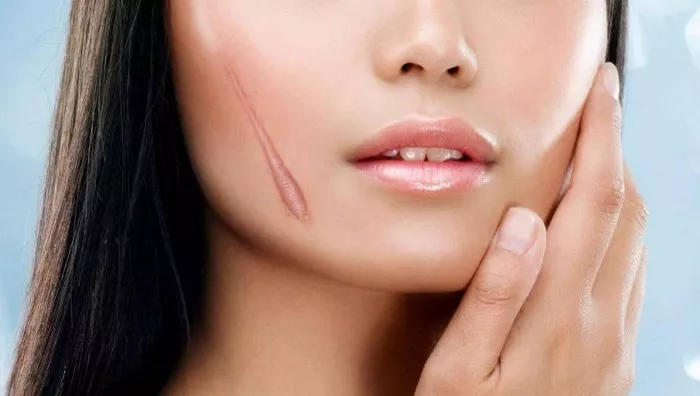Scars are a natural part of the body’s healing process, but they can often cause distress and affect self-confidence, particularly when they are prominent or located in visible areas. Fortunately, there are various treatment options available to help minimize the appearance of new scars and promote optimal healing. In this comprehensive guide, we’ll explore different types of scars, professional treatment options, topical remedies, home remedies, scar prevention strategies, and the importance of seeking professional consultation for personalized advice.
Scar Classification
Before delving into treatment options, it’s important to understand the different types of scars and their characteristics:
Keloid Scars: Keloids are raised, thickened scars that extend beyond the boundaries of the original injury. They may continue to grow over time and can be itchy or tender.
Hypertrophic Scars: Similar to keloids, hypertrophic scars are raised and thickened but typically remain within the boundaries of the original wound. They may improve over time but can be cosmetically bothersome.
Atrophic Scars: Atrophic scars are characterized by a loss of tissue, resulting in a depression or indentation in the skin. Examples include acne scars and surgical scars.
Contracture Scars: Contracture scars occur when large areas of skin are lost or damaged, leading to tight, pulled-together skin that can restrict movement. They often occur after burns.
Identifying the specific type of scar is essential for determining the most appropriate treatment approach.
Professional Treatment Options
Professional treatments offer advanced solutions for scar management and can be tailored to the individual’s scar type, severity, and skin characteristics. Some common professional treatments include:
Laser Therapy: Laser therapy uses focused light energy to target and break down scar tissue, promoting collagen production and skin remodeling. It is effective for reducing the appearance of various types of scars, including acne scars, surgical scars, and stretch marks.
Dermabrasion: Dermabrasion involves the removal of the top layer of skin using a rotating brush or diamond-tipped instrument. This procedure helps smooth out the surface of the skin and can improve the appearance of scars.
Injections: Injectable treatments such as corticosteroids, collagen, or hyaluronic acid can be used to flatten and soften raised scars like keloids and hypertrophic scars. These injections help reduce inflammation and promote collagen remodeling.
Professional treatments are typically performed by dermatologists or plastic surgeons and may require multiple sessions for optimal results.
Topical Treatments
Topical treatments play a crucial role in scar management and can be used alone or in combination with professional procedures. Common topical treatments include:
Scar Creams and Gels: Scar creams and gels contain ingredients like silicone, onion extract, vitamin E, and niacinamide, which help hydrate the skin, reduce inflammation, and improve the appearance of scars.
Silicone Sheets: Silicone sheets create a barrier over the scar, locking in moisture and providing gentle pressure to flatten and soften the scar tissue. They are particularly effective for raised scars like keloids and hypertrophic scars.
Alpha Hydroxy Acids (AHAs): AHAs like glycolic acid and lactic acid exfoliate the skin, promote cell turnover, and help fade hyperpigmentation associated with scars.
When choosing a topical treatment, it’s essential to consider the ingredients and their mechanisms of action, as well as any potential side effects or contraindications.
Home Remedies and Natural Approaches
In addition to professional and topical treatments, many people explore home remedies and natural approaches for scar management. While these remedies may offer some benefits, it’s important to approach them with caution and realistic expectations. Some common home remedies for scars include:
Aloe Vera: Aloe vera has anti-inflammatory and wound-healing properties that may help reduce inflammation and promote skin regeneration.
Coconut Oil: Coconut oil is rich in fatty acids and antioxidants that can hydrate the skin and improve its elasticity, potentially reducing the appearance of scars.
Honey: Honey has antibacterial properties and can help moisturize the skin, accelerate wound healing, and minimize scar formation.
Vitamin E Oil: Vitamin E oil is believed to promote skin repair and regeneration, although scientific evidence supporting its effectiveness for scar management is limited.
While these home remedies may provide some relief, it’s essential to consult with a healthcare professional before using them, especially if you have sensitive skin or underlying medical conditions.
Factors to Consider
When choosing the best treatment for new scars, several factors should be taken into consideration:
Scar Type: Different types of scars may respond differently to various treatments, so it’s essential to identify the specific type of scar before selecting a treatment approach.
Severity: The severity of the scar, including its size, depth, and location, will influence the choice of treatment and the expected outcomes.
Skin Type: Skin type plays a role in how the skin responds to treatments, so it’s important to consider factors such as skin sensitivity, pigmentation, and susceptibility to scarring.
Individual Preferences: Personal preferences, lifestyle factors, and treatment goals should also be taken into account when selecting a treatment approach.
By considering these factors, individuals can make informed decisions about the most appropriate treatment for their scars.
Personalized Recommendations
Given the wide range of treatment options available, it’s essential to seek personalized recommendations from a qualified healthcare professional, such as a dermatologist or plastic surgeon. A healthcare provider can assess the specific characteristics of your scars, discuss your treatment goals and preferences, and recommend the most suitable treatment approach based on your individual needs.
Scar Prevention Strategies
While it’s not always possible to prevent scars entirely, there are steps you can take to minimize their appearance and promote optimal healing:
Early Wound Care: Proper wound care, including cleaning the wound, keeping it moist, and protecting it from further injury, can help minimize scar formation.
Sun Protection: Protecting scars from sun exposure can help prevent hyperpigmentation and minimize their visibility. Use sunscreen with SPF 30 or higher and wear protective clothing when outdoors.
Avoiding Irritants: Avoiding harsh chemicals, abrasive materials, and excessive friction on healing wounds can help prevent complications and promote optimal healing.
Healthy Lifestyle: Maintaining a healthy lifestyle, including a balanced diet, regular exercise, and adequate hydration, can support the body’s natural healing processes and promote skin health.
By following these scar prevention strategies, you can help minimize the risk of developing new scars and promote optimal healing for existing scars.
Importance of Professional Consultation
Finally, it’s important to emphasize the value of seeking professional consultation for scar treatment. A qualified healthcare professional can assess your individual needs, provide personalized recommendations, and guide you through the treatment process to ensure the best possible outcomes. Whether you choose professional treatments, topical remedies, or natural approaches, consulting with a healthcare provider will help you make informed decisions and achieve your desired results.
In conclusion, treating new scars requires a comprehensive approach that considers the specific characteristics of the scar, individual preferences, and treatment goals. By understanding the different types of scars, exploring professional treatments, considering topical remedies and natural approaches, and seeking personalized recommendations from a qualified healthcare professional, individuals can effectively manage their scars and promote optimal healing. Remember, the key to successful scar treatment is patience, consistency, and a proactive approach to care.
[inline_related_posts title=”You Might Be Interested In” title_align=”left” style=”list” number=”6″ align=”none” ids=”6690,6629,6568″ by=”categories” orderby=”rand” order=”DESC” hide_thumb=”no” thumb_right=”no” views=”no” date=”yes” grid_columns=”2″ post_type=”” tax=””]

































